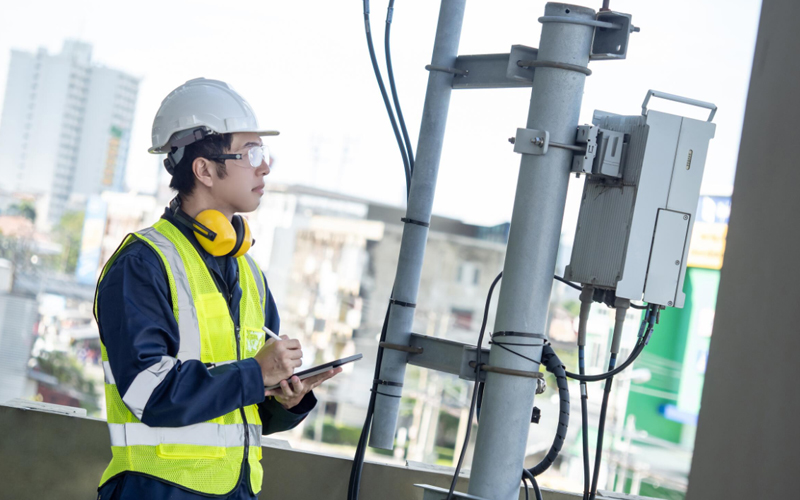E-commerce platforms are at the heart of today’s shopping experience, bringing convenience and variety to customers’ fingertips. 85.6% of global customers report they have made an online purchase as of October 2024. However, this growing popularity and prevalence has resulted in e-commerce becoming one of the most vulnerable industries when it comes to cybercrime. This highlights the need for robust security measures to ensure a secure ecommerce environment to protect customers and businesses alike while providing a seamless user experience.
Understanding the need for ecommerce fraud protection
As customers continue to rely on online transactions, e-commerce platforms are facing a growing range of threats. From phishing attacks and identity theft to malware infections and payment fraud, these threats can compromise customer data and present financial and reputational risks. With the average cost of a data breach reaching $4.88 million in 2024 (almost a 10% rise from 2023), addressing these threats with effective fraud detection solutions and robust e-commerce fraud protection protocols is no longer an option but a business imperative.
Eleven ways to secure ecommerce environment
Protecting your e-commerce marketplace requires a multi-layered approach, combining technological innovations, industry best practices, and vigilance. Some of the most common and effective strategies to secure your ecommerce environment include:
Install a Secure Sockets Layer (SSL) certificate
An SSL certificate prevents data interception by malicious actors during data exchange between your website and users through encryption protocols. A valid SSL certificate is essential for compliance with data security standards and secures sensitive customer data – like credit card details – thus, building customer trust.
Choose a secure web host and e-commerce platform
Selecting a reliable web host and a secure e-commerce platform is fundamental for ecommerce fraud protection. Ensuring the fraud detection software you use offers robust security features, such as automatic updates, malware protection, and strong server-side encryption, are essential for business safety.
Conduct regular vulnerability and malware scans
Automated scanning tools can help identify vulnerabilities in your security protocols and detect malware before it can cause harm, ensuring a secure ecommerce environment. Implementing these scans as a part of your routine website maintenance ensures you remain resilient against emerging threats.
Implement a Web Application Firewall (WAF)
A WAF acts as a barrier between your website and potential attackers, helping filter malicious traffic and block unauthorised access attempts. It is a vital tool in safeguarding sensitive customer data and preventing common exploits like SQL injection or cross-site scripting.
Secure payment gateways
Protecting transaction data and preventing online transaction fraud are essential parts of ecommerce fraud protection. Working with providers offering tokenisation, encryption, and multi-factor authentication features can help you achieve this with added layers of protection.
Transition to HTTPS protocol
HTTPS protocol has become non-negotiable for e-commerce sites, encrypting communication between the site and the customers. Beyond security, it also plays a key role in enhancing customer confidence.
Use anti-malware and anti-virus software
Robust anti-malware and anti-virus software are essential elements of any fraud detection solution you implement. These can help detect and neutralise any malicious programs that could compromise your website. Keeping your fraud detection software up to date is critical to ensure it can address the latest vulnerabilities and ensure continued protection.
Strengthen login and account security
Multi-factor authentication, strong password requirements, and CAPTCHA can help you strengthen account security. Such multi-layered security mechanisms reduce the risk of unauthorised access and protect sensitive customer information. Moreover, monitoring the account activity log can help you identify potential anomalies and suspicious behaviours, such as repeated failed login attempts.
Maintain regular data backups
Regular backups ensure you can quickly restore operations in the event of a security breach or system failure. Storing backups securely and testing them periodically can help confirm their effectiveness.
Stay informed about emerging e-commerce threats
Cyberthreats are evolving constantly, making it critical to stay updated on the latest threats and vulnerabilities to secure your ecommerce environment.
Comply with PCI-DSS requirements
Adherence to Payment Card Industry Data Security Standard (PCI-DSS) guidelines is vital for any business handling payment information. Becoming PCI-compliant not only demonstrates your commitment to safeguarding customer data but also reduces liability in case of a breach.
Infosys BPM brings cutting-edge fraud detection solutions and proven expertise to effectively secure e-commerce stores against ever-evolving threats. From helping deploy robust fraud detection software to leveraging future-ready tech for tailoring ecommerce fraud protection strategies, Infosys BPM has empowered businesses to safeguard their e-commerce platforms, resulting in 10x ROI, ~$2 million potential savings, and 50% fewer false positives for a smooth online experience.
Conclusion
Securing your e-commerce store is an ongoing commitment, requiring the right mix of technology, vigilance, and compliance measures. Prioritising measures to secure your ecommerce environment and leveraging fraud detection solutions can help businesses enhance the defences of their online stores while delivering a trustworthy shopping experience for their customers.








